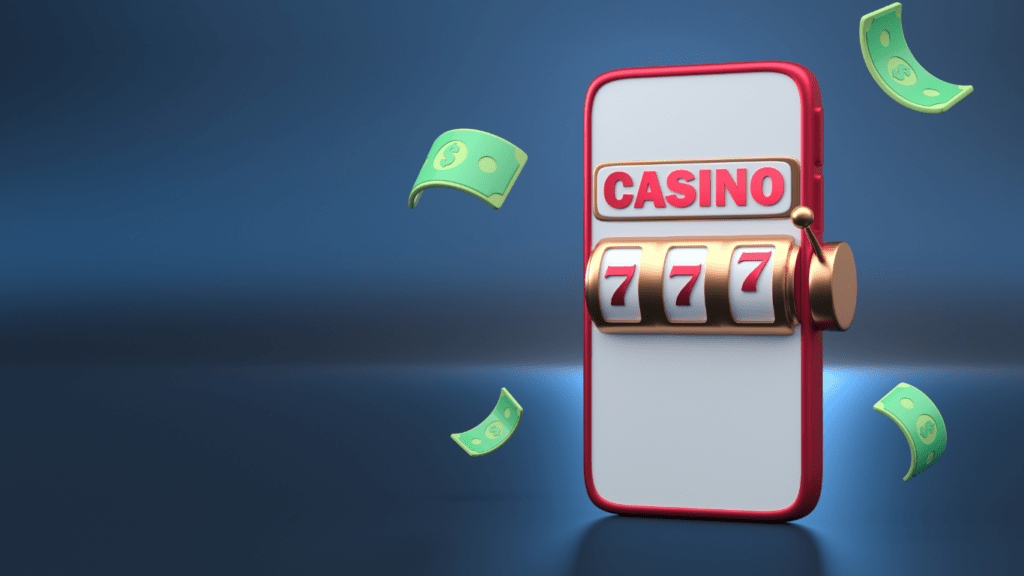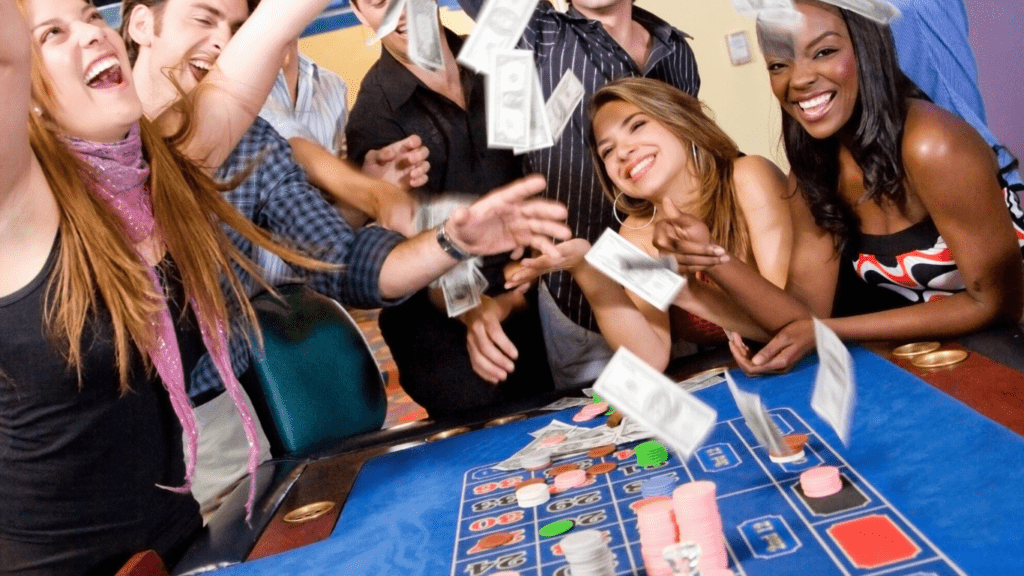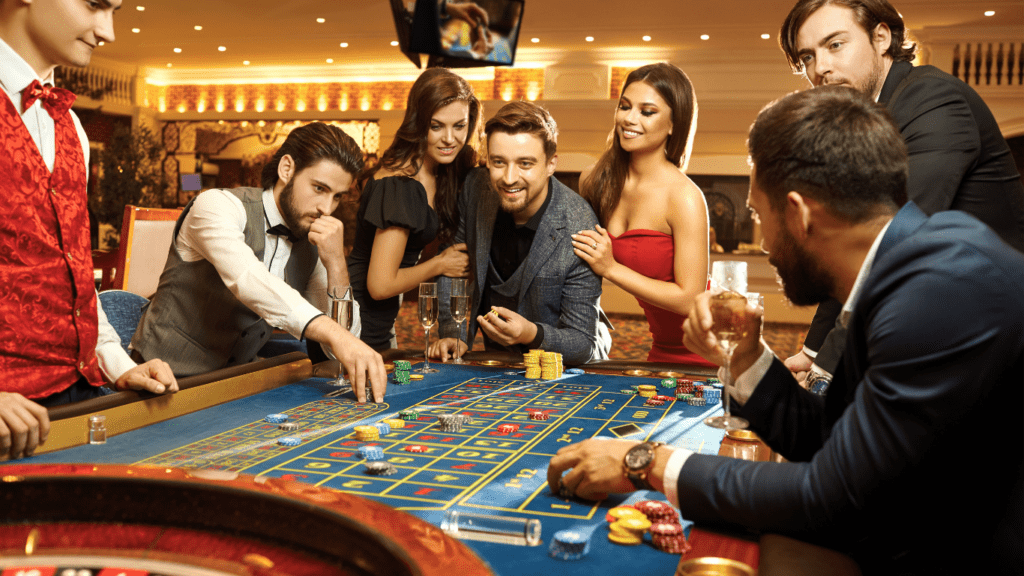High-stakes gambling has always fascinated me. There’s something captivating about the adrenaline, the risk, and the sheer confidence it takes to put massive amounts of money on the line. But what really drives these big bettors to chase such extreme thrills? It’s not just about the money—it’s about psychology, emotions, and sometimes even a deeper need for control or escape.
Understanding High-Stakes Gambling
High-stakes gambling involves more than placing significant bets; it’s a complex psychological landscape. Gamblers drawn to this level exhibit distinct behaviors and motivations tied to risk and reward.
What Defines High-Stakes Gambling?
High-stakes gambling centers on betting substantial amounts of money with commensurate risks. These bets occur across various platforms like high-limit poker games, sports betting markets, and exclusive casino tables. Unlike standard gambling, high-stakes gambling typically involves:
- elevated financial risks
- intense gameplay
- increased reliance on strategy
In professional settings, this type of gambling often includes wagers exceeding five-figure sums. For example, a high-limit baccarat table may require minimum bets starting at $10,000 per hand. Stake thresholds vary by context, but the combination of risk appetite and high financial stakes sets this apart.
The Profile Of A High-Stakes Gambler
High-stakes gamblers share certain psychological and demographic traits. Many are affluent individuals, such as entrepreneurs, celebrities, or corporate executives, who have both the financial capacity and a higher tolerance for loss. These players typically possess a competitive mindset and crave the emotional highs generated by significant risks and wins.
Personality traits of these gamblers often include risk-seeking behavior and resilience. For example, they tend to view losses as part of the game rather than deterrents. Additionally, some are motivated by the social status attached to high-stakes play, where exclusivity and recognition amplify the experience.
Researchers also link high-stakes gambling with certain psychological drivers like sensation seeking and emotional escape, indicating that the activity often fulfills deeper cognitive or emotional needs.
Psychological Drivers Behind Big Bettors
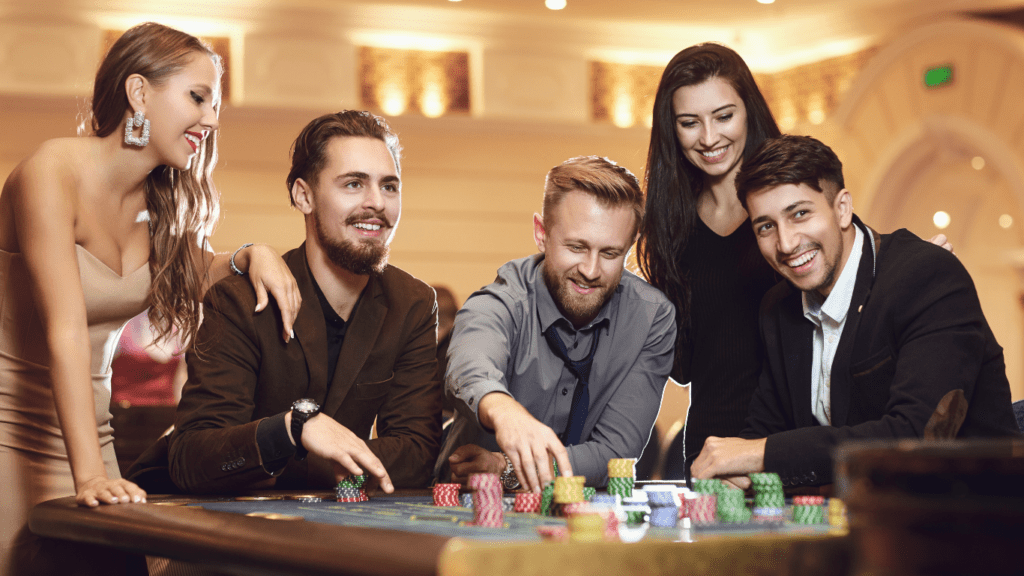
High-stakes gambling often reveals intricate psychological drivers that transcend mere monetary incentives. Big bettors are propelled by a mix of thrill, ego, and underlying behavioral patterns that influence their decisions.
Risk-Taking And Thrill-Seeking Behaviors
- Risk-taking and thrill-seeking dominate high-stakes gambling. Big bettors actively pursue uncertainty for the adrenaline rush it provides.
- Sensation-seeking personalities are drawn to intense experiences like betting substantial sums on uncertain outcomes.
- The dopamine surge from high-risk situations reinforces this behavior, creating a cycle of pursuit for the next high.
- Betting $100,000 on a single blackjack hand reflects their craving for exhilaration.
The Role Of Ego And Social Status
Ego and social status play a pivotal role in driving big bettors. Betting large amounts often becomes a stage to display financial power or assert dominance in elite circles. Exclusive gambling environments, such as private high-stakes poker games, appeal to individuals seeking validation or recognition. The public acknowledgment of daring bets or significant wins feeds their self-image and boosts their perceived status among peers, reinforcing return behavior.
Addiction And Compulsive Behaviors
Addiction and compulsive traits frequently underlie the actions of high-stakes gamblers. Psychological dependence on gambling arises when the emotional highs outweigh rational decision-making. Big bettors develop difficulty breaking free from the cycle due to cognitive distortions, such as viewing losses as opportunities to “win it back.” Studies indicate that compulsive gambling tendencies are linked to altered reward systems in the brain, making these individuals more vulnerable to repetitive behavior, despite consequences.
The Influence Of Environment And Culture
High-stakes gambling environments are meticulously designed to enhance a player’s psychological engagement, heavily influenced by cultural factors. These elements create a setting where risk-taking feels natural and socially rewarding.
Casino Design And Psychological Triggers
Casino designs use strategic layouts and sensory elements to keep players engaged and focused on gambling. Floor plans often lack windows and clocks to disorient players’ sense of time and encourage prolonged gaming sessions. Lighting and color schemes, like red and gold tones, evoke excitement and optimism, creating a subconscious link to wealth and success. Sound effects, such as simulated cheers or jackpot buzzers, reinforce winning as a shared celebration.
Smaller, player-centered triggers further enhance the experience. Complimentary services like drinks or amenities build rapport between casinos and gamblers, fostering a sense of belonging and reciprocation. Exclusive high-limit sections provide privacy and a personalized experience, boosting the appeal for affluent bettors who value exclusivity.
The Impact Of Peer Pressure And Social Networks
Social influences amplify high-stakes gambling behaviors, especially in elite social circles. Bettors often compete with peers, using large wagers to assert status or align with group norms. This dynamic makes gambling a shared activity, where monetary risks translate into social rewards or recognition.
Social networks also play a psychological role by normalizing extreme gambling risks. Seeing others engage in high-stakes betting may validate taking similar actions, reducing perceived risks. Casinos embed this sense of community among high-stakes bettors through loyalty programs, tournaments, or exclusive member events, creating networks that reinforce gambling as a social standard.
Financial Implications And Decision-Making
High-stakes gambling involves significant financial risks that influence decision-making processes. The mindset and psychological factors driving these decisions shed light on the complex relationship between money and behavior.
The Illusion Of Control In Gambling
High-stakes bettors often believe they can influence outcomes through skill or strategy. This illusion of control misleads individuals into overestimating their abilities in gambling, especially in games of chance like roulette or blackjack. While skill-based games such as poker offer some strategic elements, the unpredictable nature of most betting events undermines actual control. Bettors may attribute wins to their expertise and losses to external factors, reinforcing the perception that success is achievable with persistence. This cognitive bias fosters continued participation and risk-taking despite mounting financial losses.
The Psychology Of Loss And “Chasing”
Financial losses activate emotional responses that push gamblers to recover their money, a behavior called “chasing losses.” Big bettors often escalate their wagers to recoup what they’ve lost, creating a cycle of increased risk-taking. This reaction stems from loss aversion, where the pain of losing feels more intense than the pleasure of winning. In high-stakes gambling, losses can surpass six or seven figures, amplifying the psychological pressure to recover at any cost. For example, a bettor losing $500,000 may rationalize wagering $1 million on the next round to “solve” their financial gap. However, this behavior often worsens financial instability, leading to long-term consequences like debt or ruined reputations.

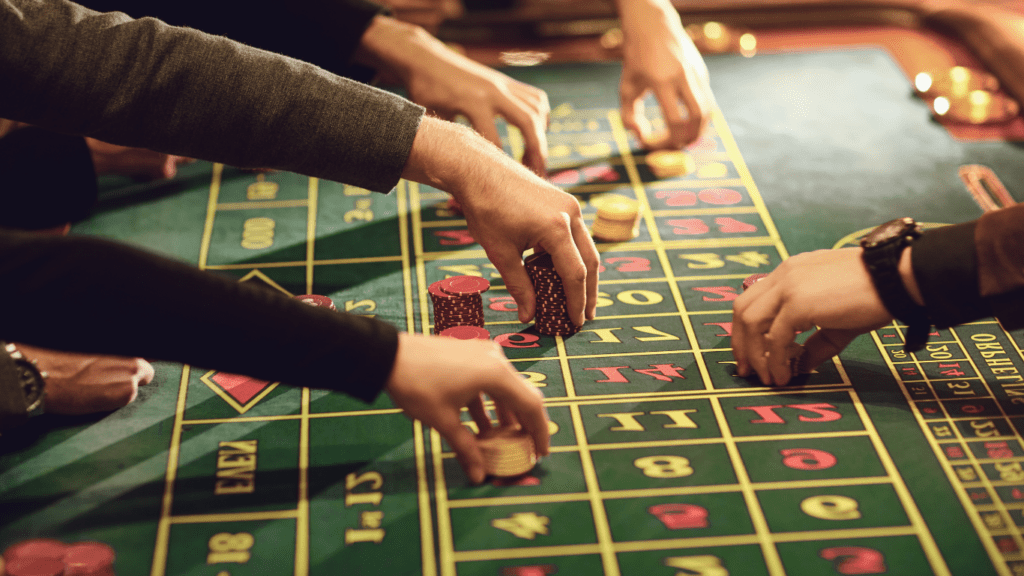
 Mark Buxtononics is the Senior Betting Analyst at Gamble Time Hub, bringing sharp analytical skills and a deep understanding of betting markets to the forefront. Specializing in data-driven insights and predictive analysis, Mark delivers in-depth evaluations of sports betting trends, odds movements, and strategic plays. His work helps readers make smarter, more informed decisions across a variety of betting platforms. With a commitment to clarity and accuracy, Mark plays a key role in establishing Gamble Time Hub as a reliable source for expert betting knowledge.
Mark Buxtononics is the Senior Betting Analyst at Gamble Time Hub, bringing sharp analytical skills and a deep understanding of betting markets to the forefront. Specializing in data-driven insights and predictive analysis, Mark delivers in-depth evaluations of sports betting trends, odds movements, and strategic plays. His work helps readers make smarter, more informed decisions across a variety of betting platforms. With a commitment to clarity and accuracy, Mark plays a key role in establishing Gamble Time Hub as a reliable source for expert betting knowledge.